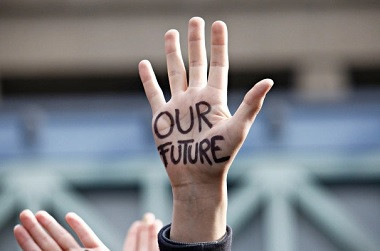
GCED Basic Search Form
Quick Search
현재 위치
Events

20 June 2023 ( -
Location: UNESCO Headquarters, Paris, France
Rooms: VIRTUAL ROOM B
Type: Cat VIII - Symposia
Arrangement type: Virtual
On the 20th of June, on World Refugee Day, UNESCO, in collaboration with key partners, presents an online event highlighting the paramount importance of inclusion for refugees and other displaced populations.
This event serves as a platform for UNESCO and its partners to advocate for collective efforts to include and integrate refugees and other displaced populations within the higher education system. It recognizes higher education institutions as vital bridges connecting humanitarian action to the development agenda, emphasizing their roles and responsibilities and the significance of adequate inclusion policies.
Through informative discussions, interactive sessions, and shared experiences, this event seeks to inspire and empower participants to create a more inclusive and supportive environment for refugees and displaced populations within the realm of higher education. We aim to strengthen the collective response to this global challenge by fostering dialogue and collaboration.
Agenda
09:00-09:05 - Opening remarks by Maki Katsuno-Hayashikawa, Director, 2030 Division, Education Sector, UNESCO
09:05-10:30 - Session 1: Beyond borders - Exploring UNESCO qualifications passport for refugees and vulnerable migrants in the era of digitalisation
This session will be the opportunity to examine the how some of the barriers faced by refugees and crisis-affected displaced populations can be reduced and the role that technology plays in the education landscape. The discussion will also be centred around navigating the digital platforms which UNESCO qualifications passport for refugees and vulnerable migrants (UQP) utilizes for easier access globally. The panelists will include stakeholders, such as developers, government officials, recognition authorities, and refugees themselves, that can provide valuable insight into the importance of a systematic approach and best practices applied within the Zambian system in inclusion and higher education.
10:30-11:00 - Break
11:00-12:30 - Session 2: Recognition of skills from a lifelong learning perspective
This session focuses on the establishment of comprehensive systems and mechanisms for recognizing, validating, and accrediting non-formal and informal learning. A highlight of the session is the launch of the highly anticipated publication titled Skillsets in transit: Understanding recognition, validation, and accreditation of learning outcomes for migrants and refugees by the UNESCO Institute for Lifelong Learning. This publication thoroughly examines the suitability of recognition, validation, and accreditation processes in meeting the specific needs of migrants and refugees in countries worldwide. It sheds light on the prevailing knowledge gaps in this important field.
Through this session, participants will gain a deeper understanding of the key role played by a whole system approach in facilitating the integration and success of refugees and displaced populations within education and labour market systems. The session will offer valuable insights and best practices that can contribute to the comprehensive and effective support of migrants and refugees on their learning and skills development journey as well as an opportunity to engage with leading experts, and explore innovative approaches to contribute to the advancement of inclusive education and employment opportunities for migrants and refugees worldwide.
12:30-15:00 - Break
15:00-16:30 - Session 3: Navigating the policy world for the integration of refugees and other displaced populations in various national contexts
The session will focus on the intricate landscape of policy-making and its impact on the integration of refugees and other displaced populations in diverse national contexts. Recognizing the importance of robust policy frameworks in facilitating successful integration, we will explore the challenges, opportunities, and innovative approaches employed by different countries. Through engaging discussions and case studies, we aim to navigate the complexities of policy development and implementation, highlighting effective strategies that promote inclusion and address systemic barriers. By examining the diverse national contexts, we can learn from each other and identify best practices that can be adapted and applied worldwide.
16:30-18:00 - Session 4: Empowerment of higher education institutions as enablers of integration - Good institutional practices
The session will shine a spotlight on the empowerment of higher education institutions as enablers of integration through the presentation of good institutional practices. Recognizing the pivotal role that higher education institutions play in enabling the inclusion and integration of refugees and displaced populations, we will explore successful practices and strategies implemented by these institutions. Through interactive discussions and sharing of experiences, we aim to identify effective approaches for building hosting capacities, fostering integration, and promoting adequate inclusion policies. By highlighting these good institutional practices, we seek to empower higher education institutions and provide inspiration for others to create inclusive environments and support systems. We will delve into the significance of peace education within higher education institutions as a key enabler of integration and harmony. Peace education plays a crucial role in preventing conflicts and strengthening the social system by fostering empathy, dialogue, and peaceful resolutions.
URL:
